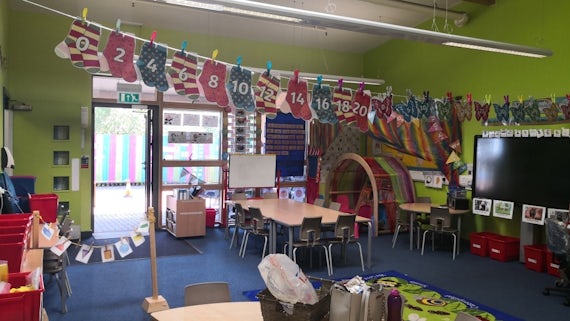Energy, Environment and People
We work together to develop evidence-based solutions to critical issues of energy and sustainability within the built environment.
Our group is dedicated to exploring the intricate interplay of energy and environmental performance in human-centric architecture and urban design.
Our collective expertise spans a wide spectrum of domains, encompassing building energy efficiency and performance, indoor air quality and health, human psychology and behaviour, urban microclimates, smart building and cities, as well as climate change adaptation and mitigation in the built environment.
Projects
Meet the team
Lead researcher
Academic staff
Publications
- Luo, D. et al. 2024. Beyond droplet deposition: Virus transport and deposition modeling in respiratory tract influenced by ambient environment and exhalation activities. Building and Environment 255 111406. (10.1016/j.buildenv.2024.111406)
- Zhang, C. et al., 2024. Enhancing building energy consumption prediction introducing novel occupant behavior models with sparrow search optimization and attention mechanisms: A case study for forty-five buildings in a university community. Energy 294 130896. (10.1016/j.energy.2024.130896)
- Sun, Y. et al., 2024. Grey-box model-based demand side management for rooftop PV and air conditioning systems in public buildings using PSO algorithm. Energy (10.1016/j.energy.2024.131052)
- Yang, L. et al., 2024. Different explanations for surface and canopy urban heat island effects in relation to background climate. iScience 27 (3) 108863. (10.1016/j.isci.2024.108863)
- Patel, H. and Zapata-Lancaster, M. 2024. Integrating views on building performance from different stakeholder groups. Journal of Corporate Real Estate 26 (1), pp.21-40. (10.1108/JCRE-02-2023-0003)
- Zhang, C. et al., 2024. Forecasting building plug load electricity consumption employing occupant-building interaction input features and bidirectional LSTM with improved swarm intelligent algorithms. Energy 288 129651. (10.1016/j.energy.2023.129651)
- Li, Y. , Du, H. and Basavapatna Kumaraswamy, S. 2024. Case-based reasoning approach for decision-making in building retrofit: A review. Building and Environment 248 111030. (10.1016/j.buildenv.2023.111030)
- Tadrak, W. , Patterson, J. and Chatzivasileiadi, A. 2023. Exploring the potential of scaling up Smart Local Energy Systems to transform clusters of housing: Insights from a case study in Wales, UK. Journal of Physics: Conference Series 2600 (2) 22011. (10.1088/1742-6596/2600/2/022011)
- Berger, C. et al., 2023. The role of user controls with respect to indoor environmental quality: From evidence to standards. Journal of Building Engineering 76 107196. (10.1016/j.jobe.2023.107196)
- Al-Hafith, O. , Basavapatna Kumaraswamy, S. and de Wilde, P. 2023. Assessing annual thermal comfort extent in central courtyards: Baghdad as a case study. Smart and Sustainable Built Environment 12 (3), pp.660-681. (10.1108/SASBE-09-2021-0154)
- Cui, Z. , Latif, E. and Stevenson, V. 2023. Decision-making framework to identify the optimal hybrid renewable energy system for switching UK representative domestic buildings towards the net-zero target. In: Kruger, E. L. , Karunathilake, H. P. and Alam, T. eds. Resilient and Responsible Smart Cities. Springer. , pp.229-241. (10.1007/978-3-031-20182-0_17)
- Zapata-Lancaster, M. G. et al. 2023. Carbon dioxide concentration levels and thermal comfort in primary school classrooms: what pupils and teachers do. Sustainability 15 (6) 4803. (10.3390/su15064803)
- Berger, C. et al., 2023. Thermal conditions in indoor environments: exploring the reasoning behind standard-based recommendations. Energies 16 (4) 1587. (10.3390/en16041587)
- Stevenson, V. 2022. Use of storage and renewable electricity generation to reduce domestic and transport carbon emissions—whole life energy, carbon and cost analysis of single dwelling case study (UK). In: Constable, E. ed. Transitioning to Affordable and Clean Energy. Basel, Switzerland: MDPI. , pp.95-130. (10.3390/books978-3-03897-777-3-4)
- Uduku, O. et al., 2022. Teaching comfort: critical approaches, digital interventions and contemporary choices. In: Nicol, F. , Roaf, S. and Rijal, H. B. eds. Routledge Handbook of Resilient Thermal Comfort. London: Routledge(10.4324/9781003244929-39)
- Fernández Goycoolea, J. P. , Zapata-Lancaster, M. and Whitman, C. 2022. Operational emissions in prosuming dwellings: a study comparing different sources of grid CO2 intensity values in South Wales, UK. Energies 15 (7) 2349. (10.3390/en15072349)
- Haggar, P. et al., 2022. Information sharing preferences within buildings: Benefits of cognitive interviewing for enhancing a discrete choice experiment. Energy and Buildings 258 111786. (10.1016/j.enbuild.2021.111786)
- Chatzivasileiadi, A. , Ampatzi, E. and Knight, I. 2022. Electrical energy storage sizing and space requirements for sub-daily autonomy in residential buildings. Energies 15 (3) 1145. (10.3390/en15031145)
- Juangjandee, W. , Stevenson, E. and Latif, E. 2022. Key factors of occupants' behaviour characteristics and indoor air quality perception on occupancy comfort in multi-storey residential buildings in Thailand. In: Chias, P. and Hernandez, S. eds. WIT Transactions on the Built Environment. Vol. 210, Southampton: WIT Press. , pp.63-76. (10.2495/ARC220061)
- Zapata-Lancaster, G. , Smith, T. A. and Ionias, M. 2022. Indoor air quality in primary schools: First report. Project Report.Cardiff: Cardiff University
- Zapata-Lancaster, G. , Smith, T. and Ioanis, M. 2022. Indoor air quality in primary schools: final report.
- Ntzani, D. , Magill, S. and Chatzivasileiadi, A. 2021. Creative together: Fostering and displaying creativity in digital education. [Online].Cardiff: Cardiff University Centre for Education Support and Innovation. Available athttps://blogs.cardiff.ac.uk/CESI/creative-together-fostering-and-displaying-creativity-in-digital-education/.
- Stevenson, E. 2021. An introduction to passive cooling. [online]. YouTube: Cardiff University CPD Unit. Available athttps://www.youtube.com/watch?v=hKZyRFm4f-E.
- Mahdavi, A. et al., 2021. The role of occupants in buildings’ energy performance gap: myth or reality?. Sustainability 13 (6) 3146. (10.3390/su13063146)
- Stevenson, E. 2020. Materials in the built environment - Whole life energy / carbon. WEENTECH Proceedings in Energy 6 (1), pp.136-153. (10.32438/WPE.2920)
- Chatzivasileiadi, A. , Ampatzi, E. and Knight, I. P. 2019. The impact of battery storage technologies in residential buildings with sub-daily autonomy and EV contribution. Journal of Physics: Conference Series 1343 12088. (10.1088/1742-6596/1343/1/012088)
- Chatzivasileiadi, A. et al. 2019. Characteristics of 3D solid modeling software libraries for non-manifold modeling. Computer-Aided Design and Applications 16 (3), pp.496-518. (10.14733/cadaps.2019.496-518)
Next steps
Research that matters
Our research makes a difference to people’s lives as we work across disciplines to tackle major challenges facing society, the economy and our environment.
Postgraduate research
Our research degrees give the opportunity to investigate a specific topic in depth among field-leading researchers.
Our research impact
Our research case studies highlight some of the areas where we deliver positive research impact.

















